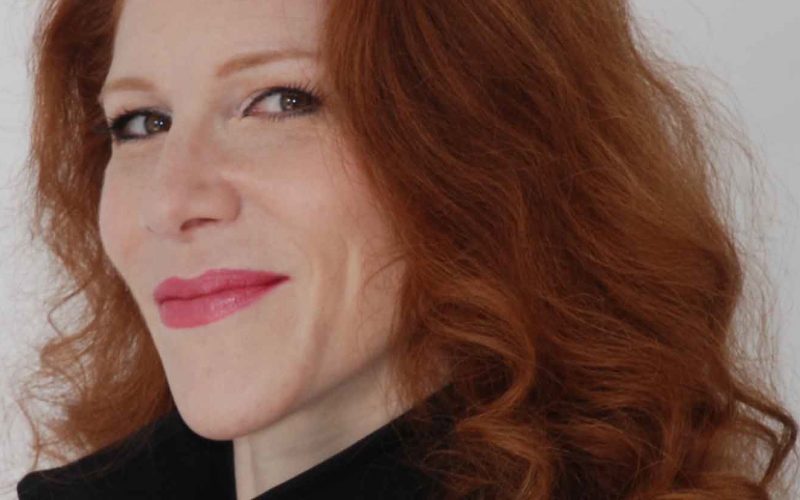Credible Fret
I’m a 34-year-old woman in a two-year relationship with a guy. I’ve never been the jealous type. Yet, I do feel oddly possessive and jealous in this relationship, especially lately. My friends say this a sign I need to “work on” myself. Really? If so, how? What do I need to do?
—Worried
“Hey, where’s the boyfriend?” your friend asks as she plops down on the couch next to you. You look at your phone: “Well, according to my tracking device, he’s at the end of Main, turning right onto Slauson.”
Jealousy gets a bad rap. Sure, it’s sometimes a sign that your self-worth is in the toilet. But it can also be a sign that your boyfriend has been sneaking off to the toilet at work with his boss’s busty assistant.
Evolutionary psychologist David Buss notes that sexual jealousy appears to be one of the “mate guarding adaptations” that evolved over human history — a sort of police dog of emotions to protect us from being cheated on. Buss observes that sexual jealousy is activated by “threats to mate retention,” including “the presence of mate poachers” (rivals trying to lure your partner away), “cues to infidelity, or even subtle signals that suggest that a partner might be dissatisfied with the current relationship.”
But there are signals, and then there are meaningful signals. A possibly helpful thing to recognize is that we have overprotective defense systems. “Defense expression is often excessive,” observes psychiatrist and evolutionary psychologist Randolph Nesse. This isn’t an accident or a design flaw. It’s evolution saying, “Hey, hon, let’s be on the safe side here.”
Consider the smoke alarm that’s a little oversensitive. This can be annoying when it screams for the hook and ladders whenever the neighbor lights incense next to her tub. But it’s far less annoying than waking up to your toes being crisped by your flaming bedroom rug.
Figure out the source of your feelings so you can address it. Is there something amiss in your psychology that leads you to be overly sensitive — to see a threat where it doesn’t really exist — or are you sensing some meaningful danger to your relationship? It’s one thing to follow the person you love with your eyes as he walks off; it’s another thing entirely to do it with a pair of high-powered binoculars and a bug sewn into his laptop bag.
Netflix And Kill
My boyfriend and I have a TV ritual — watching our favorite show together every week. Yesterday, I had a dinner meeting, and I asked him to wait to watch it with me, but he didn’t. There’s so much other stuff on TV. Did he really need to watch “our show”? He doesn’t understand what the big deal is and told me to just watch the episode myself and get caught up. Grrr.
—Mad
So, your boyfriend’s saying, “My darling…my love…you know your happiness means the world to me — just not enough to masturbate and read a book for an evening.”
To be fair, it probably seems like a TV show is just a TV show. What is the big deal if he watches ahead? But it turns out that context matters. This is a TV show you watch together — or, as my boyfriend describes it, it’s a “relationship show.” That probably sounds romantic, but considering our shows are usually murder-centric, date night is basically “Come over at 7, and we’ll have a nice dinner and watch six innocent people being gutted like hogs.”
It turns out that the fictional social world couples share through their “relationship shows” can be important to their partnership. According to research by social psychologist Sarah Gomillion and her colleagues, it works like sharing a social network of real live friends and family members, fostering a “shared identity.”
In fact, their research suggests that sharing a fictional social world “predicts greater relationship quality.” This was especially true among couples who “reported sharing fewer mutual friends with partners.” For those partners, “sharing media more frequently was associated with greater interdependence, closeness, and confidence in the relationship.”
As for why you feel hurt, your boyfriend basically sent you the message, “I want to watch this show now more than I want to watch it with you.” But look to how he is in general. Is he loving? Does he usually — or at least often — prioritize your happiness and well-being? If so, you can probably get him to mend his episode-straying ways, simply by explaining why your collective fictional friends are important to your relationship. This is likely to fire up his empathy — or, at the very least, his dread of a brand-new recurring argument: “How can I ever trust you if you can’t — for a single evening — resist the seductive nature of the balding, annoying Larry David?”
(c)2018, Amy Alkon, all rights reserved. Got a problem? Write Amy Alkon, 171 Pier Ave, #280, Santa Monica, CA 90405, or e-mail AdviceAmy@aol.com. @amyalkon on Twitter. Weekly radio show: blogtalkradio.com/amyalkon
Order Amy Alkon’s new book, “Unf*ckology: A Field Guide to Living with Guts and Confidence,” (St. Martin’s Griffin, 2018).
www.amazon.com/Unf-ckology-Field-Living-Confidence/dp/125008086X



